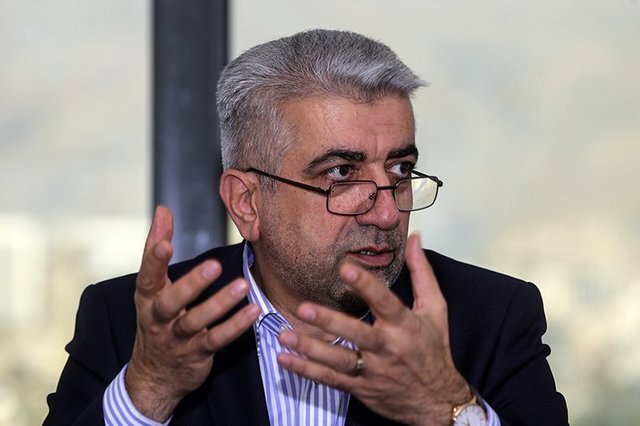
Iran capable of boosting electricity exports to Afghanistan

According to the official, Iran intends to expand its energy cooperation with Afghanistan in various areas of this industry including long-term electricity contracts for increasing exports, meeting the needs of the Afghan electricity industry, power plant maintenance, reducing energy waste, and so on.
Mentioning his recent visit to the neighboring country, Ardakanian noted that during the visit the two countries signed a memorandum of understanding (MOU) for expansion of cooperation in several areas.
Based on the MOU signed on August 18, the two sides are going to collaborate in several areas including reconstruction and repair of Afghanistan’s worn-out transmission equipment, construction of Zaranj electricity transmission line, and synchronization of the two countries' networks.
“The contract for Iran’s electricity exports to Afghanistan was also extended for another year,” Ardakanian said.
Earlier in September, Ardakanian announced that Iran and Afghanistan have agreed to accelerate their cooperation in the electricity sector through setting up a joint taskforce.
“The Afghan president has recommended establishment of this taskforce and we are waiting for it to be set up as soon as possible,” the minister said.
Iran and Afghanistan are also considering realization of 16,000 megawatts potential of renewable energy projects in border areas.
“With good wind energy capacity in the two countries’ border regions, the two sides can use that capacity to generate nearly 16,000 megawatts of electricity,” Iran’s Deputy Energy Minister Homayoun Haeri said in a meeting with Afghan Minister of Energy and Water Mohammad Gul Kholmi during his visit to Kabul on August 17.
As the biggest exporter and importer of electricity in the Middle East, Iran plays a central role in power supply in the region.
It exports electricity to Pakistan, Turkey, Iraq and Afghanistan. Under swap deals, Iran exports electricity to Armenia and Azerbaijan in winter and imports in summer.
In late August, Ardakanian said, “We have been able to fulfill our energy export commitments to our neighbors due to good rainfalls this year.”
“About 2.3 billion kWh of electricity was exported in the June to August period, the highest amount of exports in recent years,” the energy minister added.
He said the country’s electricity sector has witnessed new records in generation, exports and consumption management during the current calendar year (started on March 20).
“This year we have set new records in this sector by inaugurating 3,250 megawatts (MW) capacity of new power plants, saving 3,874 MW in peak consumption period in summer, and exporting 2.3 billion kilowatt hours (kWh) of electricity to neighboring countries in the hot season,” Ardakanian said in a gathering of energy ministry’s public relation offices in Tehran.


Trump weighs using $2 billion in CHIPS Act funding for critical minerals

Codelco cuts 2025 copper forecast after El Teniente mine collapse

Electra converts debt, launches $30M raise to jumpstart stalled cobalt refinery

Barrick’s Reko Diq in line for $410M ADB backing

Abcourt readies Sleeping Giant mill to pour first gold since 2014

Nevada army depot to serve as base for first US strategic minerals stockpile

SQM boosts lithium supply plans as prices flick higher

Viridis unveils 200Mt initial reserve for Brazil rare earth project

Tailings could meet much of US critical mineral demand – study

Kyrgyzstan kicks off underground gold mining at Kumtor

Kyrgyzstan kicks off underground gold mining at Kumtor

KoBold Metals granted lithium exploration rights in Congo

Freeport Indonesia to wrap up Gresik plant repairs by early September

Energy Fuels soars on Vulcan Elements partnership

Northern Dynasty sticks to proposal in battle to lift Pebble mine veto

Giustra-backed mining firm teams up with informal miners in Colombia

Critical Metals signs agreement to supply rare earth to US government-funded facility

China extends rare earth controls to imported material

Galan Lithium proceeds with $13M financing for Argentina project

Kyrgyzstan kicks off underground gold mining at Kumtor

Freeport Indonesia to wrap up Gresik plant repairs by early September

Energy Fuels soars on Vulcan Elements partnership

Northern Dynasty sticks to proposal in battle to lift Pebble mine veto

Giustra-backed mining firm teams up with informal miners in Colombia

Critical Metals signs agreement to supply rare earth to US government-funded facility

China extends rare earth controls to imported material

Galan Lithium proceeds with $13M financing for Argentina project

Silver price touches $39 as market weighs rate cut outlook

















